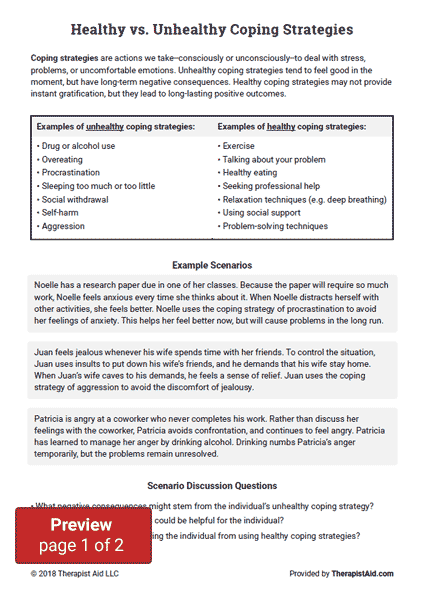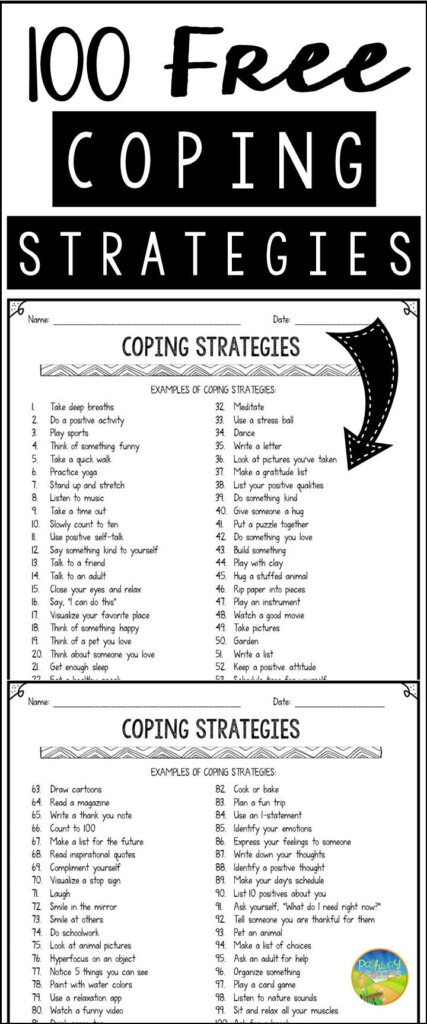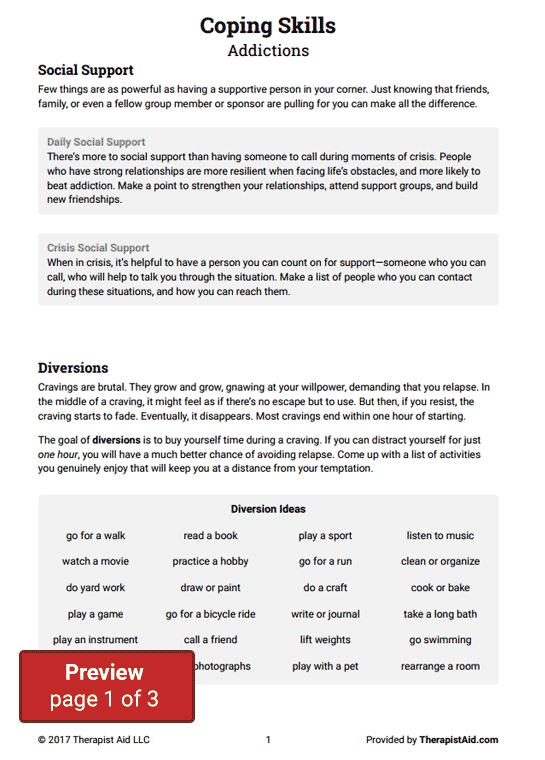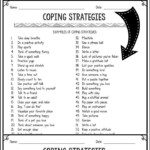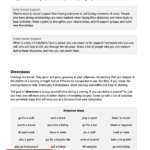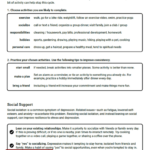Therapist Aid Coping Skills List – Therapist Aid Worksheets are a valuable resource for those who want to improve their wellbeing and mental health. These tools that are based on evidence can be utilized in conjunction with traditional therapies, providing an organized means to work on self-help techniques, track progress, and gain insights into the thoughts, feelings and habits.
Types of Therapist Aid Worksheets
- Cognitive Behavioral Therapy (CBT) Worksheets
CBT worksheets help users to identify and change their destructive patterns of thinking and behavior. When working through these worksheets, participants can gain insight into the cognitive impairments that affect their mental health as well as learn how to challenge and change them with healthier alternatives.
- Anxiety and Stress Management Worksheets
These worksheets highlight techniques to reduce anxiety and manage stress, such as breathing exercises, relaxation exercises and mindfulness exercises. With these worksheets completed, people can come up with their own strategies in dealing with stressful circumstances and maintaining emotional stability.
- Emotional Regulation Worksheets
Emotional regulation worksheets seek to aid users in understanding and managing their emotions better. These tools may include topics including identifying emotional triggers in order to develop healthy coping strategies and focusing on self-compassion.
- Relationship and Communication Worksheets
These worksheets help develop the skills needed for healthy relationships. These include interpersonal communication, empathy and conflict resolution. Through the use of these worksheets, individuals can strengthen their interpersonal skills as well as build more satisfying connections with others.
How to Use Therapist Aid Worksheets Effectively
- Select the Right Worksheet
Choose a workbook that targets the specific problem or skill that you’re looking to improve. This helps ensure that the solution can be used in conjunction with your needs and objectives, which will maximize its effectiveness.
- Complete the Worksheet Consistently
You must commit to a consistent schedule for finishing your worksheet in a regular manner, whether that’s daily weekly, or monthly. A consistent schedule helps build confidence in your learning and helps you progress over time.
- Reflect on Your Responses
It is important to take the time to carefully review any responses that you’ve made in response to worksheet’s questions. This process of reflection will enhance how you think about your feelings and thoughts as well as lead to greater improvement and change.
- You can share this with your therapist
For those who work alongside an occupational therapist sharing your completed worksheets with them. This will provide valuable insight into your growth and to guide your therapy sessions more efficiently.
Conclusion
Therapist Aid Worksheets are an adaptable and useful way to enhance your mental health journey. Selecting the most appropriate worksheet for your specific needs, practicing the same routine, analyzing your responses, and sharing your progress with your therapist, it is possible to maximize the potential of these tools to your own growth and self-improvement. Be aware that your mental health is an ongoing process and using Therapist Aid Worksheets is the first step to creating better balance and a happier life.
